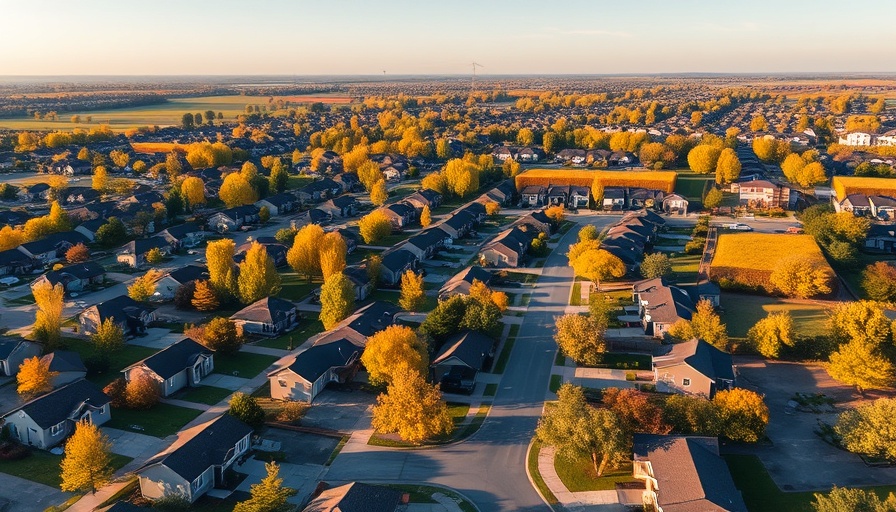
Understanding HOAs and CDDs: Why the Distinction Matters
Finding your dream home can sometimes feel like navigating a maze, especially when unexpected fees and regulations come into play. For many potential homeowners in Maryland, one of the critical decisions revolves around understanding the differences between two commonly encountered entities: Homeowners Associations (HOAs) and Community Development Districts (CDDs). Both have unique roles in community living, and grasping their differences will equip you to make informed choices as you embark on this exciting journey.
What Is a Homeowners Association (HOA)? Unearthing the Basics
Homeowners Associations are private organizations that govern residential communities. Typically, they are established by the developer of a subdivision, and their primary function is to manage common areas and enforce community standards. This might mean maintaining the landscaping, providing security, or overseeing shared amenities like pools and clubhouses.
The funding for an HOA comes primarily from assessments paid by homeowners. These fees, which can be collected monthly, quarterly, or annually, are designed to cover operational costs and contribute to reserve funds—essential for larger repairs and enhancements down the line.
What to Know About HOA Fees
Regular Assessments: Homeowners contribute fees that may cover utilities, insurance, landscaping, and maintenance costs.
Special Assessments: Occasionally, additional fees may be levied for unexpected major expenses, like replacing roofs or emergency infrastructure repairs.
Payment Schedule: Fees can be structured in various ways—monthly, quarterly, or annually.
What Is a Community Development District (CDD)?
CDDs, on the other hand, are unique entities created primarily to provide specialized services for community development and infrastructure. They are often a solution for financing and managing essential public services without burdening local governments with the initial costs of building these infrastructures, such as roads, utilities, and recreational facilities.
Unlike HOAs, CDDs can levy taxes on residents to fund these initiatives. The primary reason for establishing a CDD is to facilitate growth and enhance the livability of a community, especially in developing areas.
Breaking Down the Comparison: HOA vs. CDD
Understanding the distinctions between HOAs and CDDs can mean the world when deciding where to buy. HOAs are primarily concerned with maintaining quality of life in existing neighborhoods, while CDDs often focus on funding and enhancing infrastructure for new developments. While some communities feature both, their overlapping functions can cause confusion for first-time buyers.
Implications for Future Homeowners
For those planning to move to community-focused areas in Maryland, being informed about HOAs and CDDs is invaluable. For instance, when you start exploring neighborhoods in Montgomery County with a focus on health and wellness, knowing the types of fees and regulations tied to these entities will help avoid potential pitfalls in future home purchasing.
Frequently Asked Questions About HOA and CDD
As you delve into homeownership, you might have a few queries arising about these two entities:
Are HOA fees mandatory? Yes, if you purchase a home in a community governed by an HOA, you're required to pay the fees as specified in your neighborhood's governing documents.
Can HOA fees increase? Yes, HOAs can raise fees typically after a vote is conducted among homeowners.
Who determines CDD rates? CDD rates are determined based on assessments and must be approved by the community’s governing board.
Making Conscious Choices in Your Home Buying Journey
Deciphering between HOAs and CDDs isn’t merely an academic exercise—it translates directly to how you experience life in your new home. Understanding the associated fees, responsibilities, and governance can significantly influence your overall satisfaction and financial planning.
Conclusion: Knowing Is Power
Diving into the realm of homeownership should feel exciting, not daunting. By grasping the differences between homeowners associations and community development districts, you’re not just preparing to make an informed decision—you’re setting yourself up for a flourishing community living experience that reflects your lifestyle choices.
To ensure that you find the right community for your health and wellness, take the time to research HOAs and CDDs thoroughly and ask the right questions!
 Add Row
Add Row 
 Add Element
Add Element 


Write A Comment